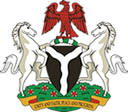Executive Summary
Home to over 200 million people, Nigeria is the most populous country on the African continent and the seventh largest in the world. The United Nations forecasts that the population will double by 2050, making it the third largest country in the world (UNDESA, 2019). Given Nigeria’s size and growth potential, the pressure to safeguard and improve the lives of its citizens is significant.
Nigeria was still recovering from its 2016 economic recession when another recession hit in 2020 due to the effects of the COVID-19 pandemic, further derailing its economic recovery. While the COVID-19 regulatory measures implemented in Nigeria helped to control the spread of the virus, many of these necessary and lifesaving measures had deleterious effects on livelihoods, health, human wellbeing, state–society relations and social harmony. The Nigerian economy has grown post-COVID, with the real Gross Domestic Product (GDP) growth rate rising from -1.92% in 2020 to +3.40% in 2021. Despite this economic recovery, the lingering impact of the 2020 recession has undermined household welfare and exacerbated poverty and vulnerability.
In August 2019, the President of Nigeria committed to empowering an additional 100 million people to escape extreme poverty by 2030. This means that, on average, 10 million people must be lifted out of poverty each year, starting from 2020. With the adverse impact of COVID-19 on livelihoods, and unemployment, this challenge has become even more important.
It is within this context that the Nigeria MPI (2022) survey was conducted across the 109 senatorial districts, establishing a baseline for the local government area (LGA) survey due in 2023, and future two-yearly national surveys.
Data source: National Bureau of Statistics
INFOGRAPHICS



